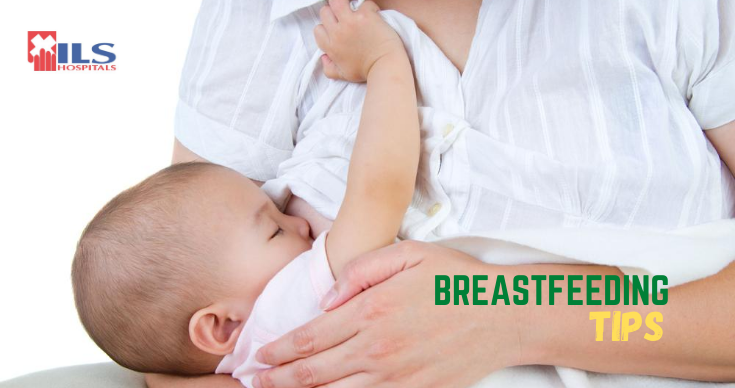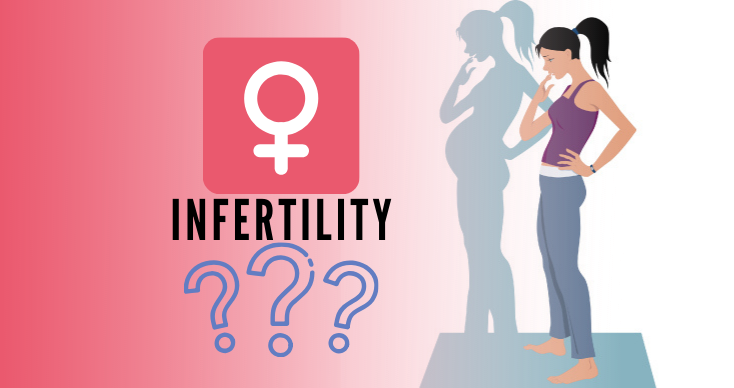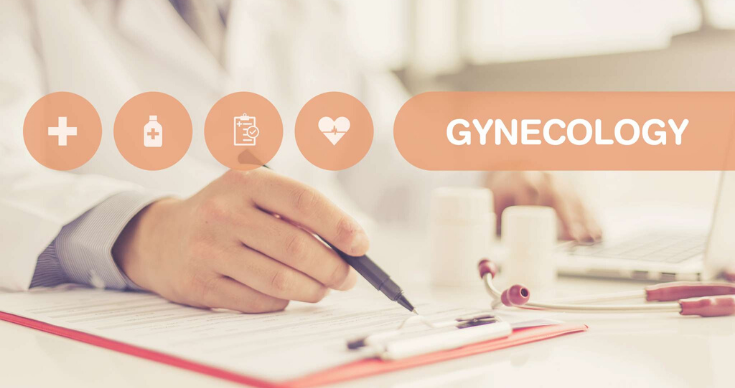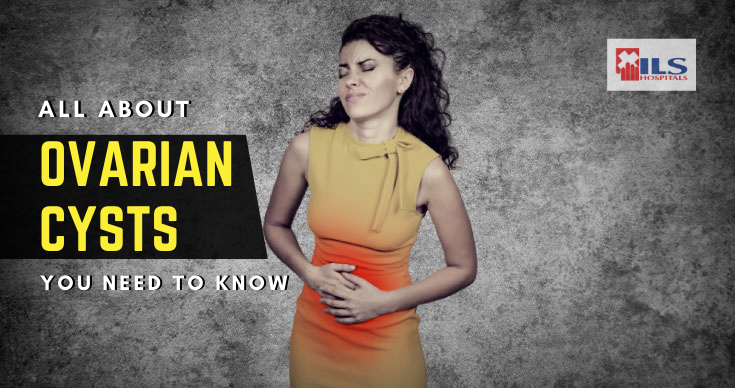Covid -19: How To Breastfeed Your Baby If You’re Covid Positive
COVID-19 cases are increasing drastically and the vaccine is still not available to the masses. If you’re a COVID positive new mother then you have to take as many precautions as you can because you have to breastfeed your newborn baby.
(Get in touch with the best gynaecologist in Kolkata for clearing queries related to gynaecological health.)
According to WHO (World Health Organization), mothers can breastfeed their babies even if they have tested positive for COVID-19. We still don’t have enough evidence to point out that Coronavirus can be transmitted through breastmilk. As breastmilk is extremely important for the newborn baby’s health and development, we encourage all new mothers to breastfeed their little ones cautiously and by keeping note of the things mentioned below:
Wear a mask while breastfeeding
Never forget to wear a mask or cloth covering before breastfeeding your baby. Wear a proper face mask that covers your nose and mouth perfectly. You can also wear a face shield over your mask.
Wash your hands before and after holding your baby
Wash your hands right before and after holding your baby. Also, use a hand sanitizer once you’ve washed your hands with soap and water.
Use a breast pump
Using a breast pump is an excellent choice now as it will require contactless breastfeeding. Ensure that the breast pump is well-sanitized after each use. When you’re using a breast pump, you can ask someone else to hygienically feed your baby.
Avoid close contact with the baby
Do not let emotions drive you. Avoid touching and being in close contact with your baby while breastfeeding.
Take good care of yourself and we hope you defeat Corona soon. For any health-related supervision, visit ILS Hospitals, the best hospital in Kolkata and Agartala.
Female Infertility: Signs And Symptoms, Causes, Diagnosis And Treatment
Infertility means being unable to conceive children. In this blog, we will mainly focus on female infertility. In basic words, female infertility is the incapability to conceive a baby even after numerous unprotected sexual intercourse with a fertile partner. There are many reasons responsible for infertility in women. To be on the safer side, regular visits to the gynaecologist should become the norm of every married or unmarried woman. You need to look for these below-mentioned signs and symptoms to find the status of your fertility. Here are some signs and symptoms related to infertility:
-
Irregular menstruation: If you have a history of frequent missed periods or irregularities in the duration (if your period lasts for than seven days) of the menstrual cycle, it is a sign of female infertility.
-
Painful menses: Periods are painful, but if they become intolerable and give excruciating muscle cramps and are accompanied with heavy bleeding, then it might indicate towards infertility.
-
Dyspareunia: If every time you suffer from pain and agony during sexual intercourse, it’s time for you to consult medical advice as it is not a normal phenomenon.
-
Unwanted hair growth or hair loss: Another common symptom is hirsutism which is the excessive growth of hair on unwanted areas or alopecia or baldness on the hair scalp.
-
Sudden weight loss or gain: One of the symptoms of female infertility is unanticipated weight loss or weight gain. There are various factors responsible for gaining or losing weight so getting medical consultation is the only way to find out the cause.
Let’s find the causes responsible for infertility in women.
-
Tubal infertility or blocked and damaged fallopian tubes
-
Earlier miscarriages
-
Multiple abortions
-
PCOS
-
Endometriosis
-
Ectopic pregnancies in the past
-
Sexually transmitted infections
-
Fibroids or ovarian cysts
-
Obesity
-
Smoking
-
Alcohol consumption.
We will now throw some insight on diagnosis and treatment available for known causes of female infertility.
Diagnostic tests recommended by OB-GYN doctor to determine female infertility
-
Urine test
-
Blood test
-
Ultrasound scan
-
X-Ray: Hysterosalpingography (HSG)
-
Hysteroscopy
-
Laparoscopy.
Surely, there are various treatment methods available for this. The prescribed treatment differs for every woman. To name a few treatment methods, we have mentioned them below:
1. Fertility drugs and medication.
2. Hysteroscopy
3. Tubal surgeries
4. IVF (In vitro fertilization)
5. Artificial insemination.
We, at ILS Hospitals, provide a precise diagnosis and necessary treatment for female infertility. Book an online appointment for medical consultation from our expert gynaecologists in kolkata.
Gynecological Problems Faced By Women At Their 20 Or 30s.
There are certain gynecological issues faced by many women of all age groups during their lifetime as per the renowned gynecologist. Here we will discuss about the issues face by the women at their 20 or 30s.
In India, many women are not provided with enough information about gynecological problems. Lack of gynae health and sex education also plays a pivotal role in a woman’s life. In our society, gynecological problems and sexual health of a woman is usually neglected.
Generally, women of this age group may face many gynecological complications specially once after getting married or involve in sexual activities. So, let’s shed some light on the topic of such gynecological problems:
-
Hormonal imbalance: Imbalanced hormone in women is a common condition of all ages. Even after getting married, as the women become sexually-active and usage of certain birth-control methods can also contribute to this factor.
-
Irregular or missed periods: Hormonal, emotional, psychological and lifestyle changes can cause irregularities in your periods. In married women, birth control pills can also have a side effect on menstruation.
-
Vaginitis: It is also called vaginal inflammation where the women have symptoms like itching, swelling, burning, redness or soreness in her vaginal area. It is usually caused by a change in the normal balance of vaginal bacteria or due to an infection.
-
Dyspareunia: Painful sexual intercourse is common in married women. The pain in genitals can last hours after sexual activity. If you suffer from pain during intercourse and abnormal vaginal discharge and bleeding, it’s time for you to consult a trusted gynecologist.
-
Sexually-transmitted infection: It affect the female reproductive organs. It happens due to unprotected sex with the infected person which causes the sexually-transmitted bacteria to enter the woman’s vagina and infect the entire uterus and fallopian tubes. It can be treated well if discovered early by medical professionals or gynecologists.
-
Endometriosis: It happens when the tissues in the uterine lining grow outside the uterus resulting in painful menstruation and infertility. It’s a serious medical condition that requires you to book an appointment with the gynecologist for proper treatment.
-
Pelvic inflammatory disease: Pelvic inflammatory disease or PID is an inflammation of the female reproductive organs due to infection. Bacteria like gonorrhea and chlamydia first enter the vagina and cause an infection then this infection move into the pelvic organs causing PID. It can become xtremely harmful and lead to many complications if the infection spreads and left untreated.
So, we hope that the above information enlightens you about some gynecological health conditions. If you suffer from any of the above conditions, refer to a gynecologist in Kolkata.
Hormonal Issues Faced By Women After Menopause
In this forever changing the world, ‘change’ is the only constant. It is particularly effective when aging is considered. Even though many illnesses keep surfacing through any age, some conditions strike due to aging. Menopause is one such condition that can cause many problems for women going through this stage. Menopause is the transition that marks the end of the reproductive age of a woman.
Today, we will talk about the hormonal issues faced by women after menopause and what needs to be done to address them, as per gynecologists.
There are two particular female hormones, namely estrogen and progesterone in the body. The overall balance and level of these hormones regulated and influence the menstrual cycle and fertility cycle. Their level decreases significantly during the menopause and as a result, it affects the overall health severely. For many women, these effects stay only for a short period of time and for many it stays effective for many years to come.
Symptoms Of Post-Menopausal Condition
Some of the most experienced symptoms of menopause are as follows-
- Irregular Periods Or Spotting
- Mood Swings Without Any Particular Reason
- Hot Flash Or Night Sweats
- Insomnia
- Tenderness And Lethargy
- Brain Fog And Feeling Out Of Focus
- Lack Of Interest In Intimacy
- Experiencing Pain Or Dryness In Intimate Regions
Many women become more susceptible to other conditions such as weight gain, osteoporosis, cardiac ailments, etc. However, the most severe effects often constrain in the mind and require long term medical care.
What Is To Be Done To Address It?
As per many studies, the emotional turmoil is more prevalent among women in western countries, as menopause is considered as a sign of aging. Thankfully, in southern Asian countries, like in India, not many women severely suffer (emotionally) due to menopause, as socially and physiologically, aging often is considered as a mark of wisdom. Though many women find this transition quite easy to deal with, gynecologists acknowledge this as a medical condition and advise to seek treatment in case one is struggling with any discomfort.
Our expert Gynecologist offers effective treatment to the women dealing with the postmenopausal syndrome. Often medication is adequate to deal with the physical symptoms, however, for the mental and behavioral ones, they can also recommend therapy. Moreover, as mentioned earlier that menopause brings many secondary conditions, as a likely scenario, so it is crucial for post-menopausal women to keep their overall health in check as well.
Why Women Should Undergo Regular Health Checkup
“It is hard to be a woman. You must think like a man, act like a lady, look like a young girl and work like a horse.”
Being a woman is indeed quite challenging. Amidst the daily hard life, most women tend to ignore their own health. However, this is a poorly thought and executed habit that often ends up badly. Our expert gynecologists and obstetricians always remind people to prioritize their own health first, before prioritizing their family or their career.
Some Illnesses Affects Women Exclusively
Due to several anatomical and biological factors, some illness affects only women, such as gynecological cancers, postpartum depression and some complications due to hormonal imbalance etc. Moreover, many illnesses are more prevalent among women, such as heart diseases, breast cancer, osteoporosis etc. In either way, it calls out for women to take extra care of themselves.
Enduring Symptoms Does ‘No Good’
Many women, particularly living in rural and semi-urban places often encounter some medical discomfort (often related to gynecological health), but sadly they keep enduring it, until the time, it becomes unbearable. The reasons are mostly due to some taboo or financial constraint. Our expert gynecologists and obstetrician encounter such cases regularly and they strictly advise against it. Taboo should have no place to interfere with one’s health and life also treating most conditions in its early stages are often quite affordable (as compared to later stages, which requires extensive treatment and surgery).
Always Remember – Timely Treatment Makes Huge Difference
No matter how complex any condition is, it is often possible to resolve it better, if they are treated on time. During the early stages, most medical conditions can be addressed effectively with mild treatment approaches. Things start to complicate when the condition left undiagnosed (and thereby untreated) for a prolonged period of time. Needless to say, the best way to ensure timely treatment is periodic screening.
At ILS Hospitals we thrive to offer every woman, a complete health care solution. Keeping this in mind, we have designed the Well Women Check Up package that offers the following screenings:
- Complete Haemogram with ESR
- Fasting Blood Sugar
- PAP smear
- Thyroid Profile
- Urine R/E
- USG Breast Screening for female below 40 yrs
- Chest X-Ray PA View
- USG Whole Abdomen screening
- ECG
We understand that it is often difficult for many individuals to draw meaningful conclusions from the reports. Thus, we offer a Gynecologist Consultation with this package. Ensure a healthy life ahead by availing this health package.
Visit us today to book your package.
All About Ovarian Cysts You Need To Know
There are several gynecological complications that affect the health of women. It is crucial to get in touch with an expert gynecologist in case any symptom of discomfort persists. Let’s have a brief introduction to one such common gynecological condition, the ovarian cysts.
Ovarian Cysts – What Are They
Ovaries are a pair of organs in the female reproductive system. They are located on each side of the uterus, in the lower abdomen. Ovarian cysts are solid or fluid-filled cavity sacs that can develop into either one or both ovaries.
Symptoms Of Ovarian Cysts
The most common symptoms of cysts are as follows-
- Pelvic Pain During Menstrual Cycle
- Abdominal Swelling
- Pain While Passing Urine Or Bowel
- Tenderness In Breasts
- Nausea And Vomiting
- Pain In Lower Back Or Legs
- Dizziness
- Fever
- Breathlessness
However, in many cases, the cysts project no bothersome symptoms and thus remain unnoticed.
Complication Of Ovarian Cysts
Majority of the cysts get resolved on its own and often requires no treatment. However, there may be some compilations associated in some cases. Some of the same are as follows-
- Ovarian torsion is a condition when a large cyst makes the ovary dislocates from its original place, causing a blood supply cut off.
- Ovarian rupture is pretty much self-explanatory, in which the cyst burst and spills the infectious content
- Having cancerous cystic ovarian mass in the cysts indicates malignancy within the cyst.
These complications require immediate medical attention as ignorance can lead to severe consequences later on.
Thereby it is crucial to know the symptoms of the same very carefully, some of which are as follows
- Unexplained Weight Loss
- Loss Of Appetite
- Random Changes On Menstrual Cycle
- Persistent Pelvic Pain
- Abdominal Discomfort Or Fullness
In case multiple symptoms are simultaneously arising and causing much pain and discomfort, it might be a silent indication of an underlying cyst complication. It requires seeking immediate medical attention.
Diagnosis Of Ovarian Cysts
Ovarian cysts can be diagnosed through the following screenings-
- Routine or recommended pelvic examination
- Ultrasonography
- MRI
- CT scan
It is important to avail these diagnostic screening timely to ensure a timely treatment in turn. Even though the cysts do not pose any severe threats, it is always wise to have an accurate diagnostic to re-ensure the same.
Treatment Of Ovarian Cysts
The treatment approach depends largely on the size and severity of the cysts. Some cysts resolve on its own, while some other requires medical intervention. It includes prescribing oral medication, birth control pills and surgical means like laparotomy.
Avail quality treatment and diagnosis of ovarian cysts at ILS Hospitals.
















